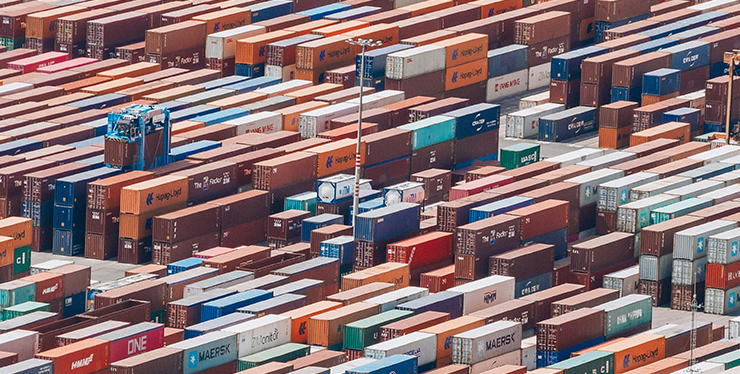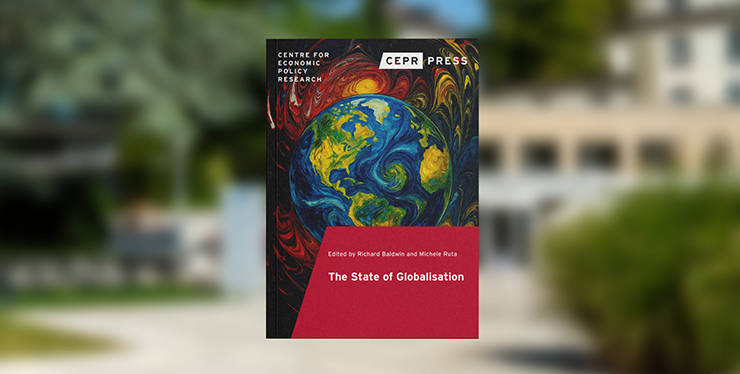
Are we headed for another recession?
Whatever the situation, some economists always predict the worst: the stock market is on the eve of a resounding crash, and the economy will plunge into an unprecedented recession. Disaster is their business. If the economy is cyclical, and it probably is, they should sooner or later be right: but when? Today, as usual, they announce that the worst is yet to come. Let’s recap.
The synchronized economic recovery is bad news. Some candid economists, such as I, might have thought that this is a positive sign long awaited. On the contrary, they believe that when all nations are growing at the same time, the economy has reached the top of the cycle. It can then be a victim of a combination of tensions: pressure on wages as in the United States, Germany or France, raises in interest rates, volatility of currencies or increase in the price of raw materials. In the end, growth succumbs to all these strains, and a recession occurs.
Inflation is in the pipeline. Theoretically, the primary consequence of a robust economic recovery is to create a risk of inflation. However, if everyone talks about it, very few countries have experienced it, so far. Most countries remain below the fateful 2% mark. Europe at 1.1%, or Japan at 1.5%. It is true that there is a slight inflationary surge in the United States with 2.4% and in Great Britain with 2.5%. But for the moment the predicted catastrophe has not occurred.
Productivity stagnates. Indeed, the extraordinary technological innovation that we are observing – social networks, automation, artificial intelligence, etc. – should increase productivity. However, it is not the case for most industrialized countries. Productivity changes oscillate between -1% to plus 1%. Many economists, such as Paul Krugman the Nobel laureate or Christine Lagarde the director of the IMF, regularly raise the issue. Doom and gloom economists think it’s a forerunner of a deteriorating economy.
In fact, it is quite possible that our gauge of productivity does not correctly reflect the true state of the economy. On the one hand, the vitality of the immaterial economy, that of data and intangible assets, is visible everywhere but measured with difficulty. On the other, some of the weaknesses of the conventional, the more material economy may be overemphasized. We need to reconcile both, as in daily life. It is the fridge syndrome.
The young and dynamic executive who spent his day in the office managing blockchains, exchanging bitcoins and developing artificial intelligence algorithms operates in a highly productive environment. But when he comes home at night and opens his fridge, he finds it… empty. He then confronts a harsh reality: we cannot eat friends on Facebook, or drink bitcoins. Sooner or later, the economy becomes material, conventional and sometimes quite slow moving.
Karl Popper, the science philosopher, became famous for his theory establishing the principle of falsification. In short, a theory is plausible only if it can regularly cope with all the attacks that attempt to falsify it. Maybe this is where disaster economists have added value. Their criticism, and doom and gloom approach to the economy force everyone to rethink the validity of current assumptions, to test the strengths and the limits of the system and to reform it, if possible, before a crisis.
However, one major drawback is that they propagate perpetual skepticism and shake the overall level of confidence. It may not always be what we need.
Constant fear of disaster is a bad counselor. As Mark Twain pointed out, “I have spent my life worrying about things that have never happened …”. Better stay optimistic!
Stéphane Garelli is Professor Emeritus of World Competitiveness at IMD
Research Information & Knowledge Hub for additional information on IMD publications
The intensification of geopolitical rivalry has raised the frequency of references to weaponizing trade, arguably a form of economic statecraft. This chapter parses the concept of weaponizing international trade in goods, services, technology, and...
The Brics emerging markets are once again touting their ambition to build a world less dependent on the US dollar. Leading the latest push is a new guarantee fund, to curb investment risk and support financing in the bloc, something discussed at l...
When Chinese Premier Li Qiang addressed the World Economic Forum’s “Summer Davos” in Tianjin, China, his message was clear: China must become a “mega-sized” consumption powerhouse. Not just the world’s factory, but its market too. His words underl...

When the leaders of the Brics group of developing countries gather on Sunday for their 17th annual summit, the backdrop is one of the most geopolitically volatile the bloc has faced in years, with trade tension, regional conflicts and energy insta...
The conference on the state of globalisation took place on 4 April 2025 in Tokyo, a few hours after the so-called US “reciprocal tariffs” were announced in Washington DC. This offered an opportunity to discuss economic research on a front page top...

The State of Globalisation brings together leading economists to examine how technology, policy, and geopolitics are simultaneously reshaping the global economy in unprecedented ways. Far from marking a simple retreat, today’s divergent forces are...
For years, multinational companies operated in the Middle East with the belief that while politics could flare up, trade would largely continue. That assumption, while once reasonable, is now under serious strain. The war between Israel and Iran l...
in Aggarwal, Vinod K. (Ed.); Cheung, Tai Ming (Ed.) / The Oxford handbook of geoeconomics and economic statecraft, pp. 125-146 / Oxford: Oxford University Press, 2025
Research Information & Knowledge Hub for additional information on IMD publications
Research Information & Knowledge Hub for additional information on IMD publications
Research Information & Knowledge Hub for additional information on IMD publications
Research Information & Knowledge Hub for additional information on IMD publications
Research Information & Knowledge Hub for additional information on IMD publications
Research Information & Knowledge Hub for additional information on IMD publications
Research Information & Knowledge Hub for additional information on IMD publications
in Baldwin, Richard (Ed.); Ruta, Michele (Ed.) / The state of globalisation, pp. 1-9 / London: CEPR Press
Research Information & Knowledge Hub for additional information on IMD publications
Research Information & Knowledge Hub for additional information on IMD publications
Research Information & Knowledge Hub for additional information on IMD publications




